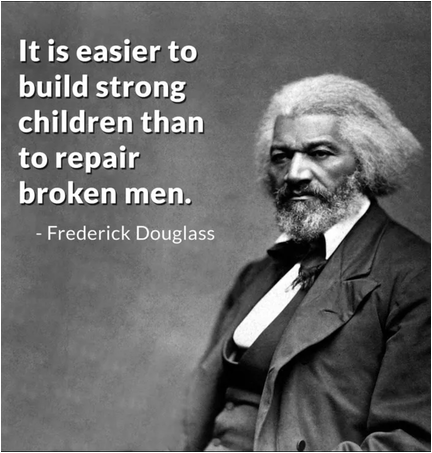 After a weekend of much needed rest and reflection, I have had some time to think not just about what independence means to me but what it means for my children. Frederick Douglass was not only a hero in the anti-slavery movement, he was also prolific in articulating great ideas expressed in speeches such as “The Meaning of the Fourth of July to the Negro“. As we sit waiting for the Republican led-Senate to make its next move in regards to the country’s health care policies that have a major consequences on individuals with disabilities in all walks of live, including at school, I can’t help but reflect on Douglass’s words in saying,
After a weekend of much needed rest and reflection, I have had some time to think not just about what independence means to me but what it means for my children. Frederick Douglass was not only a hero in the anti-slavery movement, he was also prolific in articulating great ideas expressed in speeches such as “The Meaning of the Fourth of July to the Negro“. As we sit waiting for the Republican led-Senate to make its next move in regards to the country’s health care policies that have a major consequences on individuals with disabilities in all walks of live, including at school, I can’t help but reflect on Douglass’s words in saying,
“…your shout of liberty and equality, hollow mockery; your prayers and hymns, your sermons and thanks-givings, with all your religious parade and solemnity…mere bombast, fraud, deception, impiety, and hypocrisy — a thin veil to cover up crimes which would disgrace a nation of savages. There is not a nation on the earth guilty of practices more shocking and bloody than are the people of the United States, at this very hour…”
Douglass is also famously known for saying, “It is easier to build strong children than to repair broken men.” So beyond my reflections on the healthcare system and the pending doom of what comes next, I already know the truth of where, how and who should be on the forefront of the discovery of more loving ways to make policies. Beyond promoting a gendered politic that would suggest that women make better lawmakers than men (which isn’t always true), I believe that children-focused societies are the most balanced. This was the way of many precolonial indigenous societies in the Americas and Africa that have shared mother-focuses (or matriarchal) social structures that put the power in the hands of those closest with the children in utero and in rearing. These ideas put love next to the children (born and unborn) at the center of policy-making decisions. And so, the big picture question I’m meditating on is where is the love? And can love be taught?
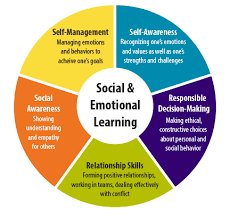 I don’t have the answer to these questions and seeking the answers prompted me to join the Collaborator Network of the Collaborative of Academic, Social and Emotional Learning (CASEL) to find ways to promote progressive pedagogy for early child development and how to raise the emotional intelligence with a focus on children. In a very Douglassian approach, CASEL promotes for school districts to develop partnerships with families and community members that are focused on improving education outcomes for children beyond academic performance, highlighting engagement, trust, and collaboration for the benefit of raising more emotionally sensitive and intelligent people. So, as I get more academically knowledgeable on the subject, I am equally in reflection of my own life experiences and internal intelligence to find some these answers.
I don’t have the answer to these questions and seeking the answers prompted me to join the Collaborator Network of the Collaborative of Academic, Social and Emotional Learning (CASEL) to find ways to promote progressive pedagogy for early child development and how to raise the emotional intelligence with a focus on children. In a very Douglassian approach, CASEL promotes for school districts to develop partnerships with families and community members that are focused on improving education outcomes for children beyond academic performance, highlighting engagement, trust, and collaboration for the benefit of raising more emotionally sensitive and intelligent people. So, as I get more academically knowledgeable on the subject, I am equally in reflection of my own life experiences and internal intelligence to find some these answers.
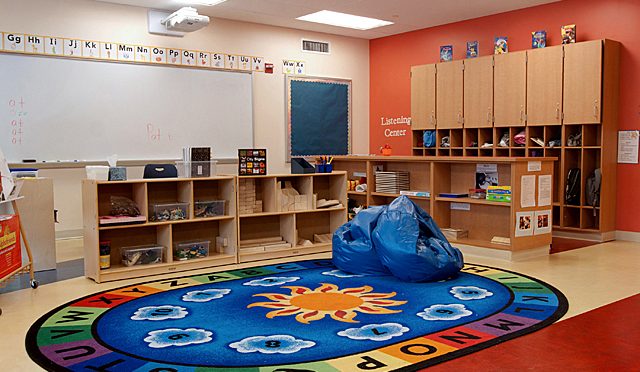
In the sixth grade at Takoma Education Campus (the school my children now attend), I chose to sing Whitney Houston’s The Greatest Love at the annual talent show. This song was selected not just because my science teacher and mentor, Ms. Weaver, introduced me to it (because she also had us singing Bob Marley’s Buffalo Solider on nature walks) but because it spoke so accurately to my world view both then and now. I truly believe the children are our future, and even as a child myself that was more on the receiving end than the delivery of these services, it made complete sense that the goal of education was to be guided and then let me lead. As a parent of children with disabilities, it is important for me now to work hand in hand with their formal and informal educators (“the village”) to ensure that all children receive free appropriate public education, or FAPE.
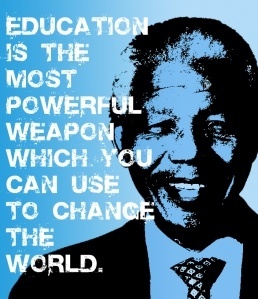 I have been thinking deeply about my role as a parent, especially as a single black mother, and how to professionalize advocacy efforts while not losing the human element of interpersonal relationships between families with a common interest to improve educational services and outcomes. For this to happen, it is critical to build trust, create a culture of skills and resource sharing and other such critical elements which are necessary for camaraderie and sustained efforts that fuels any movement. And we truly are on the precipice of another local parent-led educational movement in the District of Columbia and other places around the country to take us to the next best level of implementation of the many landmark cases and laws when it comes to the education of children with disabilities.
I have been thinking deeply about my role as a parent, especially as a single black mother, and how to professionalize advocacy efforts while not losing the human element of interpersonal relationships between families with a common interest to improve educational services and outcomes. For this to happen, it is critical to build trust, create a culture of skills and resource sharing and other such critical elements which are necessary for camaraderie and sustained efforts that fuels any movement. And we truly are on the precipice of another local parent-led educational movement in the District of Columbia and other places around the country to take us to the next best level of implementation of the many landmark cases and laws when it comes to the education of children with disabilities.
From Title VII of the Civil Rights Act of 1964 to Section 504 of the Rehabilitation Act of 1963 to Title II of the Americans with Disabilities Act in 1975 to the Developmental Disabilities Act of 1984 to the Individuals with Disabilities Education Act of 1990 there is a huge arsenal of laws that protect children and their parent advocates. Additionally, most recently, there’s the March 2017 Supreme Court ruling in Endrew F vs Douglas County School District case and the series of local landmark cases and legislation including the Blackman Jones , the 2014 Enhanced Special Education Act and now recently the DL vs the District of Columbia. It’s like walking into battle in steel armor – while it serves as protective gear, it also requires skill and training to actually fight in such a heavy load…and truly, I dislike using violent examples to explain parent-school relationships in regards to our children’s education but it’s true to life.
These federal and local laws help to break down barriers against access to timely, professionally evaluated and accurately documented educational services as well as due process procedures when there are disagreements between families and the school system. Truthfully, parents have been at the forefront of the majority of education reform policies in the United States, particularly since the 19th century Industrial Revolution which introduced child labor laws, and of course in the many years before that in different forms in precolonial societies all around the world. Today, there is a yet another need for parents to get on the forefront of legislative support to ensure budgetary commitment to translating case law into policy and practice when it comes to Child Find. And if for no other reason (and there are many more), the Inclusive Prosperity Coalition exists to midwife this local movement.
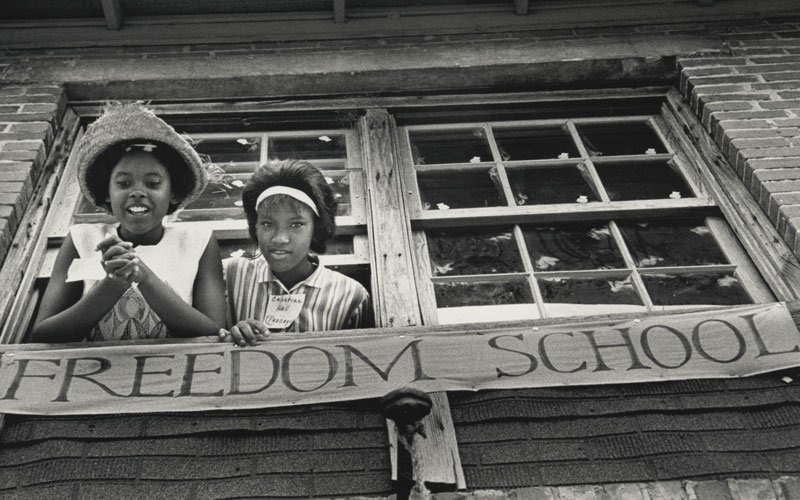 However, it is important to note that all parent-led advocacy is not progressive. After all, Secretary of Education Betsy Devos begun her troubling career as a school choice advocate, serving as the chair of the American Federation for Children that claims to want to expand the choice options of families by encouraging the pipeline that sends public funds to support unregulated private schools that may discriminate against certain populations of students including LGBTQ youth and children with disabilities. Yet, despite these negative consequences of things like school voucher programs, a recent study by the Council of Parent Attorneys and Advocates (COPAA) entitled, “School Vouchers and Students with Disabilities: Examining Impact in the Name of Choice,” found that parents often choose vouchers regardless of if there are available civil rights protections and seem to disregard these implications due to the urgency of their child needing to change schools and many other important factors. Yes, it’s true, some public schools are performing that terribly which motivates parents (particularly African American families) to exit like runaways from plantations seeking less hostile environments to rear their children.
However, it is important to note that all parent-led advocacy is not progressive. After all, Secretary of Education Betsy Devos begun her troubling career as a school choice advocate, serving as the chair of the American Federation for Children that claims to want to expand the choice options of families by encouraging the pipeline that sends public funds to support unregulated private schools that may discriminate against certain populations of students including LGBTQ youth and children with disabilities. Yet, despite these negative consequences of things like school voucher programs, a recent study by the Council of Parent Attorneys and Advocates (COPAA) entitled, “School Vouchers and Students with Disabilities: Examining Impact in the Name of Choice,” found that parents often choose vouchers regardless of if there are available civil rights protections and seem to disregard these implications due to the urgency of their child needing to change schools and many other important factors. Yes, it’s true, some public schools are performing that terribly which motivates parents (particularly African American families) to exit like runaways from plantations seeking less hostile environments to rear their children.
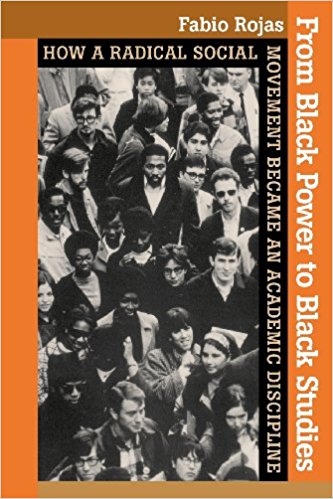 To this end, it is important to also reflect on the history of access to alternative education outside of the traditional public school system and the activation of Freedom Schools during the Civil Rights Movement, which linked quality education to access to other pathways to full democratic rights such as the right to vote. Additionally, starting in the 1970s, the emergence of organizations such as the Council of Independent Black Institutions as part of the Black Studies Movement, a movement well documented in the book, From Black Power to Black Studies: How a Radical Social Movement Became an Academic Discipline (2010) by Fabio Rojas. Alternative black education emerged in response to an often times hostile public education system. Ironically, contemporary articulations of this quest for liberated black education finds strange bed fellows with conservative architects of the school choice movement that promotes for profit schools for very different reasons of parents and students during the 1960s and 1970s that spearheaded the broader black studies movement from the civil rights era and beyond.
To this end, it is important to also reflect on the history of access to alternative education outside of the traditional public school system and the activation of Freedom Schools during the Civil Rights Movement, which linked quality education to access to other pathways to full democratic rights such as the right to vote. Additionally, starting in the 1970s, the emergence of organizations such as the Council of Independent Black Institutions as part of the Black Studies Movement, a movement well documented in the book, From Black Power to Black Studies: How a Radical Social Movement Became an Academic Discipline (2010) by Fabio Rojas. Alternative black education emerged in response to an often times hostile public education system. Ironically, contemporary articulations of this quest for liberated black education finds strange bed fellows with conservative architects of the school choice movement that promotes for profit schools for very different reasons of parents and students during the 1960s and 1970s that spearheaded the broader black studies movement from the civil rights era and beyond.
Side note: I hope to soon read and review Nancy MacLean’s Democracy in Chains: The Deep History of the Radical Right’s Stealth Plan for America (2017), which speaks to the history of Chicago School of Economics trained James Buchanan, an early architect of the modern libertarian movement, and allegedly led the anti-Brown vs. Board of Education in Virginia in 1956 through a form of privatization that both suppressed voting and undermined the public education system.
It is difficult (if not impossible) to teach what one does not know. So, to show the children all the beauty that they have inside, as Whitney Houston’s song prescribes, we as parents must find it first in ourselves. Maybe its the geek in me but I personally can’t think of anything more beautiful than rising to the occasion to roll up my sleeves and solve a problem that can change lives for the better…especially if those lives are children, including my own. And while a real challenge usually has some form of endurance training, I realize that the task in sifting through the ways to practically yet systemically improve DC’s Child Find policies is a protracted struggle, as in its a marathon and not a sprint.
I conclude with the disclaimer that I am not perfect, so I don’t expect other parents, legal advocates, educators, administrators and law makers to be perfect. I also don’t expect for us to come up with perfect processes nestled in perfect policies and procedures and impeccable monitoring and evaluation practices. None of those meet my top ten expectations of what will come next. However, I do expect real commitment to solving the work-in-progress DC Child Find system for preschool transition, transparency and an ethical approach to policy changes and budgetary allocations. As my favorite move franchise (so much so that I named my son Jedi!) says: “May the force be with us.”
Stay tuned for next stage of our campaign to maintain Early Stages services in DC Public Schools and other areas of improvement in the DC Child Find for preschoolers.
In solidarity,
Chioma
